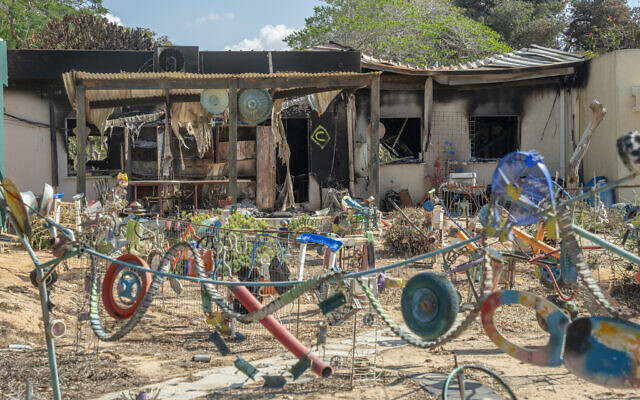



Inside a church in northeastern Thailand, the Sriaoun family gathered on Sunday, their voices rising and falling in song, some with tear-stained faces, as they prayed for the safe return of their oldest son.
Watchara Sriaoun, 32, is one of six Thais believed to be held captive by Hamas in the Gaza Strip since its terror onslaught on October 7 last year.
For a year now, the Sriaoun family, along with fellow church members, has prayed every week for his return. But there has been scant news.
“We can only pray to God,” said Wiwwaro Sriaoun, Watchara’s mother. “Asking people doesn’t give us answers, and even the village chief or headman cannot confirm anything.”
Two-hundred and fifty-one people — Israelis and foreign nationals — were abducted to Gaza on October 7, 2023, by Hamas terrorists who burst across the border into Israel and killed some 1,200 people amid acts of brutality.
The attack triggered an Israeli offensive aimed at toppling Hamas and returning the hostages.
The Hamas-run Gaza health ministry says more than 41,000 people in the Strip have been killed or are presumed dead in the fighting so far, though the toll cannot be verified and does not differentiate between civilians and fighters. Israel says it has killed some 17,000 combatants in battle as of August and another 1,000 terrorists inside Israel on October 7.
Israel has said it seeks to minimize civilian fatalities and stresses that Hamas uses Gaza’s civilians as human shields, fighting from civilian areas including homes, hospitals, schools, and mosques.
Hamas terrorists killed 41 Thais and abducted 30 Thai laborers during the October 7 attack. Six Thais are still believed to be held captive by Hamas, according to Thailand’s foreign ministry.
Last week, Thai Prime Minister Paetongtarn Shinawatra in talks with Iranian President Masoud Pezeshkian requested support for the release of the remaining Thai hostages, according to a government statement.
Before the conflict erupted, some 30,000 Thai laborers had worked in the agriculture sector, making them one of Israel’s largest migrant worker groups.
Watchara and his younger brother went to Israel in 2020, hoping to clear the family’s debt of some 300,000 baht ($8,971) and earn money for their father’s medical expenses.
Together, they sent 50,000 baht home each month to help pay off the debt and renovate the family home in Thailand’s rural heartland.
His younger brother has since returned home at their mother’s request.
With a part of the 3 million baht compensation received in July from the Israeli government, the family paid off its debt and purchased some land that Watchara had promised to buy for his mother.
But Watchara’s absence is felt every day, especially by his nine-year-old daughter Irada, who also lost her mother in August.
“I wish for this brutal war to end,” Wiwwaro said, tears welling in her eyes.
“Everyone has suffered enough, and I have suffered enough too, waiting for my son.”



